
Some guys just seem to put on muscle like it’s nothing. Back in high school, there were always those guys who could just look at dumbbells and you’d sear their muscles grew.
Not all of us can be that genetically lucky (at least in terms of muscle development).
We all experience muscle growth at different rates. And let’s be honest, most of us could use a bit of assistance in the muscle development category. Putting in the work in the gym is one thing (and necessary), as is eating enough protein to repair damaged muscle fibers.
But what else is out there that’ll help with muscle growth?
Best Muscle Gainer Supplements Count Down…
Here are a few of our all-time favorite muscle gainer supplements.
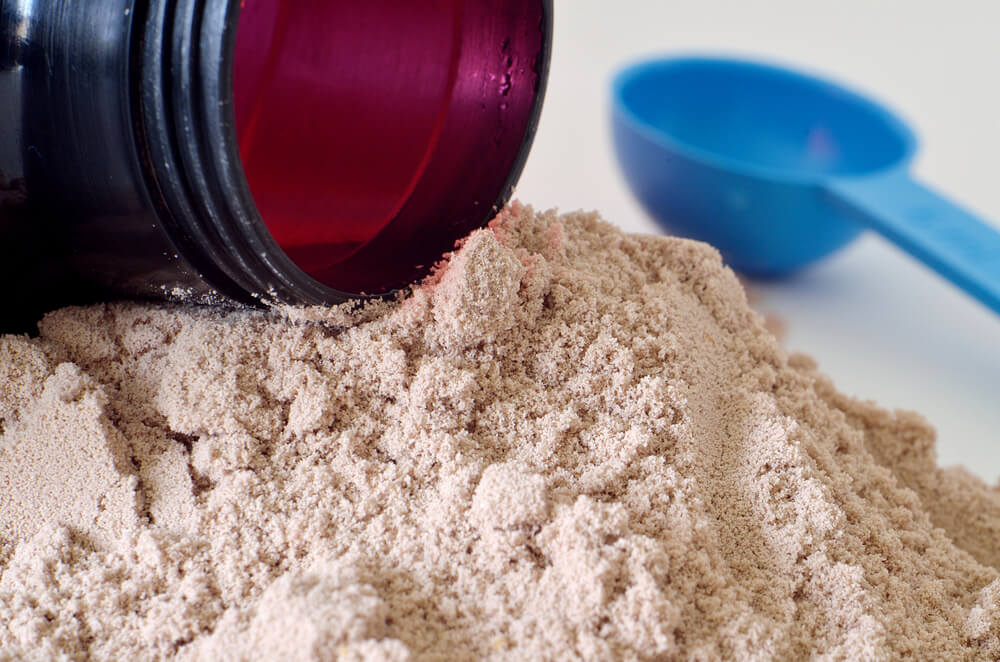
Protein Powder
Some might consider this a supplement.
Other’s a meal replacement or addition. Whatever category you might include it in, we’re adding it in here because if you want bigger muscles, you’ll likely need to increase your protein intake. Of course, there are natural ways to boost protein intake. When bulking up to play his role as Wolverine in X-Men, Hugh Jackman said he’d eat entire rotisserie chickens for nearly every meal.
That’s a ton of protein, of course eating a chicken every meal of the day gets old pretty quickly.
Protein powder has major benefits in there are not many other options that give you the protein to calorie intake level. For most off-the-shelf protein powders, you’re going to nab around 30 grams of protein per 180-200 calories. Outside of maybe egg whites, you’re not going to find the low calorie, high protein levels anywhere else. So if you want to increase muscle mass while avoiding the bulk up of fatty tissues as well, this is the way to go.
If your vegan there are plant-based proteins.
We tend to go with whey because it has additional amino acid compositions that help repair muscle tissue not found in most plant-based proteins.
But outside of this, there’s no reason to alter your lifestyle. Pick out the protein powder that best fits your needs (Mayo Clinic, 2017).
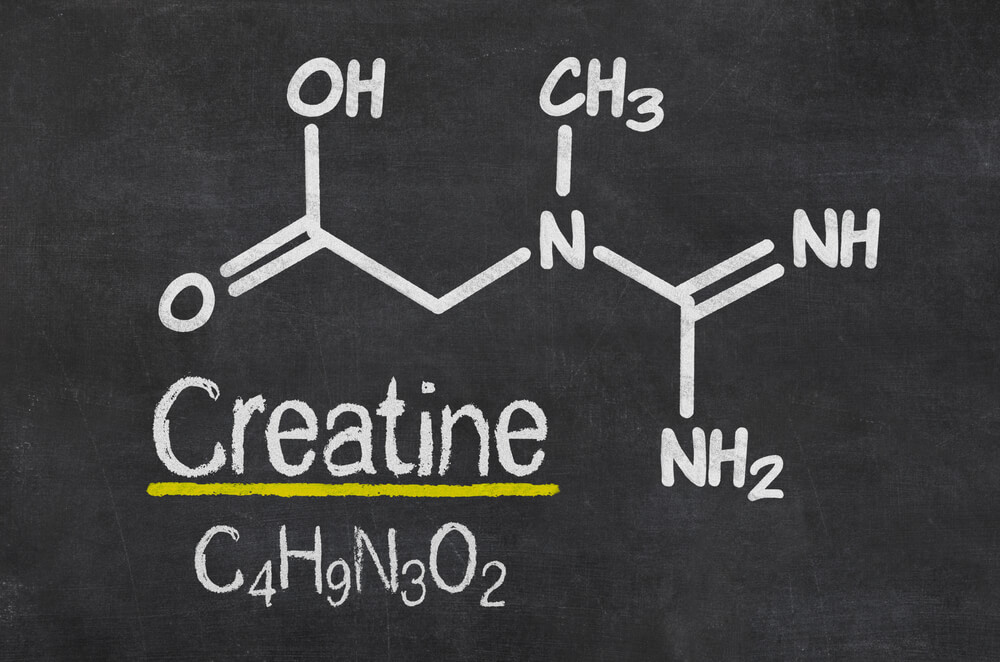
Creatine
Alright, so protein powder is one of those “maybe it’s a supplement, maybe it’s not” kind of thing. You’ll find it in the nutritional supplement section of the grocery store, and it does “supplement” your workout, so we always include that. However, there’s no denying creatine as a must for your muscle building supplement.
Creatine is produced naturally in your body. Your muscles create this chemical that gives you explosive energy for a short burst. It works along with your fast twitch muscle fibers for the quick bursts of energy.
The thing about fast twitch muscle fibers and creatine though is it runs out quickly. When lifting big, you’ll burn through the creatine storage in your muscles fast. After a set on the bench press, it’s not that your muscles are suddenly weaker. It’s a combination of your muscle fibers breaking down and your body running low on the explosive energy. Creatine gives you more energy, allowing you to put up more reps. The final reps in your sets are really the most important. These reps put the final strain on the muscles and do the must break-down damage. So by putting up a few more of these reps you’ll be able to build the muscles back up, grow stronger and grow larger, all at the same time.
So adding creatine is a must when you want larger muscles (WebMD, 2017).
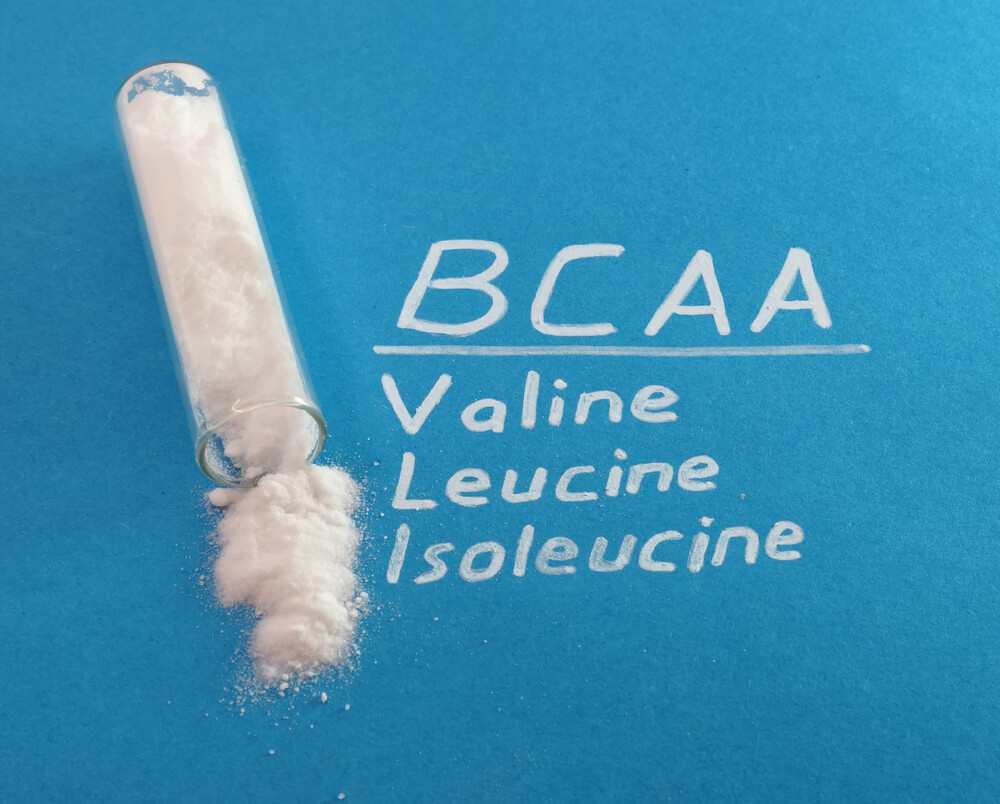
Branched-Chain Amino Acids (BCAAs)
We mentioned this a bit earlier when discussing plant-based protein powder. Amino acids help your muscles recover post-workout. When picking out a post-working supplement, it will often be a BCAA. There are several different amino acids that go into the BCAA, but the three most important (and not found in plant-based protein) are isoleucine, valine, and leucine. These amino acids help with protein synthesis and converting the available protein into muscle.
Basically, it helps improve your body’s ability to repair itself and to grow new muscle. It’s not that your body isn’t capable of doing this. Some bodies just are not as efficient as needed. These amino acids go the extra mile and assist in boosting what your body does.
Similar to that in creatine, BCAAs are already found in your body, so you’re not putting anything additional into your body it doesn’t already have. And when you’re putting in the work at the gym, taking the creatine to boost reps and consuming enough protein to rebuild your muscles, you want to make sure all of that hard work is properly utilized. Think of it as the cleanup hitter on a baseball team. The first batter’s job is to get on base.
The next two’s jobs are to advance the runner with a bit more power, and the cleanup batter is all about hitting it out of the park. You workout. You take the creatine. You consume the protein.
Now let the BCAA assist your body and hit your muscle growth out of the park (University of Michigan Medicine, 2017).
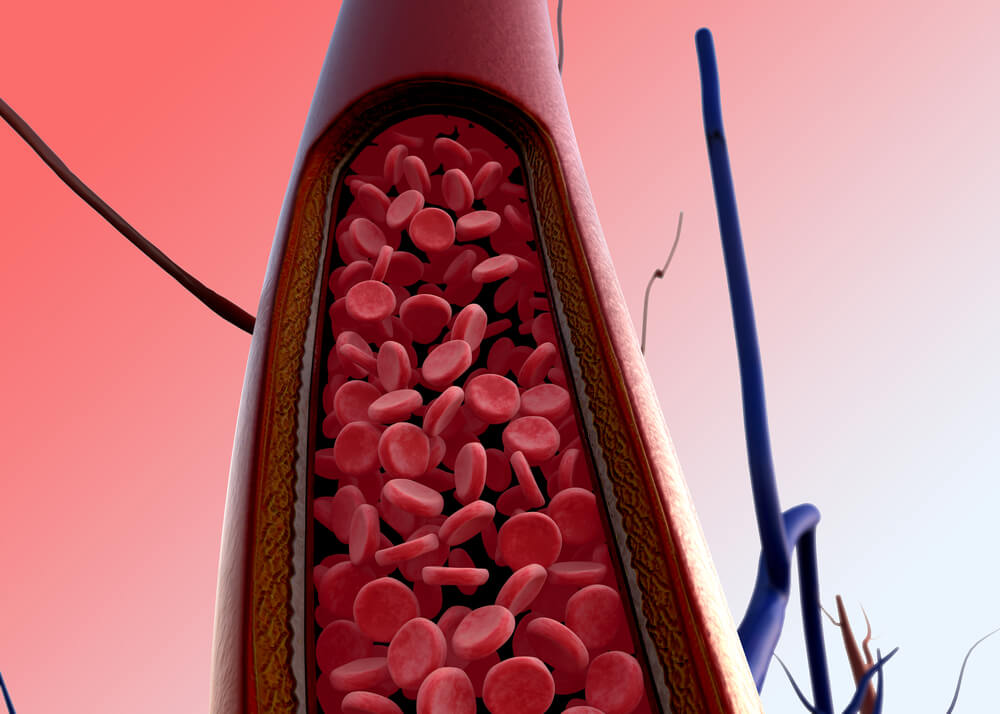
Nitric Oxide Booster
If you’re thinking this is something you put into your car for greater acceleration, you’re thinking of nitrous oxide.
However, the two actually have a bit in common. Both use oxygen to improve overall performance. No matter what kind of protein powder you take or when you consume your creatine, if it’s not delivered to your body it’s all for not. You rely on your body’s bloodstream to deliver essential energy, oxygen, nutrients, and protein throughout the day and especially during a workout.
You know the pump you get after a workout?
Your veins pop and you really show off your muscle and definition?
This is from an increased oxygen flow throughout the body as well as more blood circulating. It’s not just because you have a lower body fat percentage (although your veins become more prominent when you have a lower body fat level). A nitric oxide booster helps with this pump but it also helps with delivering the needed oxygen, energy and nutrients throughout your body. By increasing the level of oxygen inside of your blood cells, it helps deliver these important muscle building blocks.
Additionally, your body needs several different ingredients to repair and grow. First, you need the protein. Second, you need the blood delivering nutrients (like the amino acids), and third, you need oxygen. Think of your muscles like a plant, that needs nutrient-rich soil, water, sun and oxygen to grow.
By increasing oxygen and blood flow to your body, you’ll begin to see sizable gains in both performance and muscle growth (WebMD, 2017).
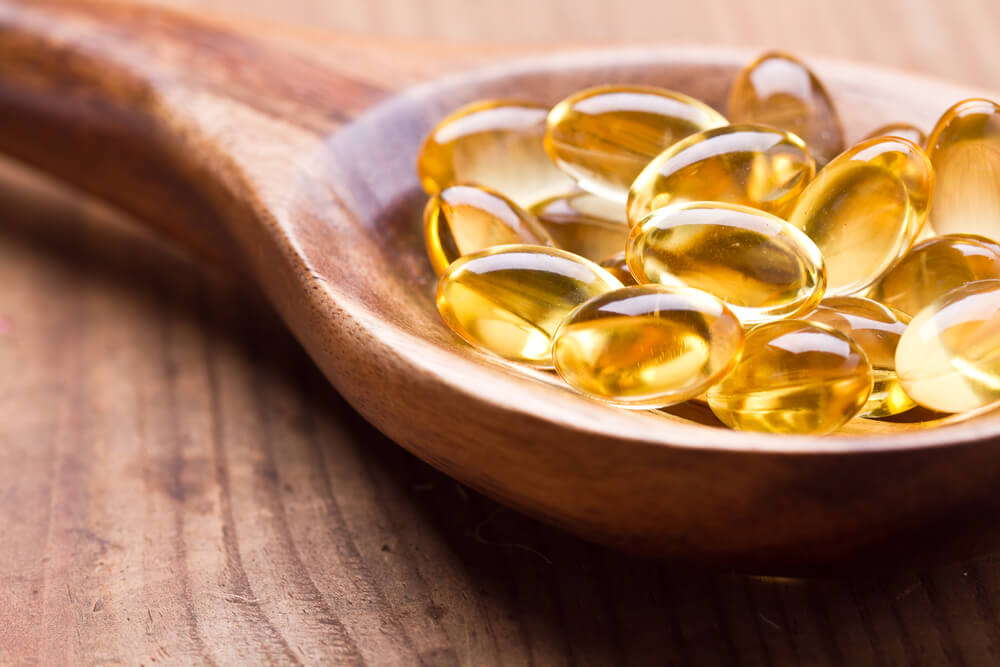
Fish Oil
Yup, not everything you need in your muscle growth regimen is found in the supplement section.
You’ll need to head over to the vitamin section in the grocery store for this one. If you’re not already taking fish oil just for general health, now is the time to add it in.
Fish oil is packed with Omega-3 fatty acids, which is important for heart health. It also helps reduce inflammation. It’s the inflammation aspect that’ll interest you when it comes to working out and muscle growth.
When you workout, your muscle tissue becomes inflamed. It’s difficult to rebuild and recover muscle tissue when it’s inflamed. So, the Omega-3 fatty acid helps reduce inflammation, which speeds up recovery time and allows your muscles to accept the other supplements to rebuild and grow the tissue. According to an article published in Clinical Science (2012), you want to consume between one and two grams of fish oil a day (it’s okay if you split it up).
Some fish oil supplements may include just 500 mg of Omega-3, so divvy it out accordingly.
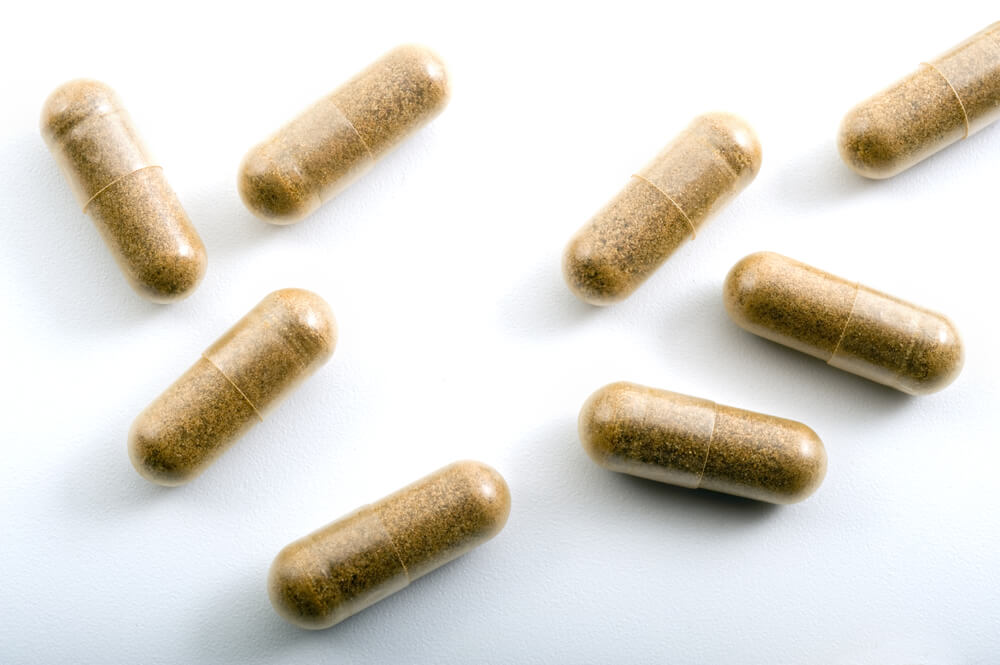
Beta-Alanine
Beta-Alanine is kind of in the same boat as BCAAs.
In fact, it works in conjunction with the amino acids.
One natural chemical your body produces is called carnosine. As your body uses up the substance during a workout it becomes fatigued, so to help increase your muscular performance, you’ll want to increase the level of carnosine in your body. Carnosine comes from beta-alanine. With the increase in carnosine storage, you’ll be able to work harder and lift more. So, in a way, it works alongside creatine in your body while also improving production with the amino acids.
When selecting supplements (this is a general rule but applied here because beta-alanine is often found in other supplements), it’s important to note whether some are combinations and not just a singular supplement.
Some whey protein comes with additional BCAAs, so you’ll want to notate how much of the amino acids is included. This gives a better idea as to how much you need to add on top of it. Beta-alanine may also be found in some creatine and BCAAs as well. Just write it all out so you know exactly what you’re putting into your body and how much.
This way, if your body has any kind of side effect, you can look at your intake levels to see if one is too low or too high (Mayo Clinic, 2016).

Caffeine
So we wouldn’t recommend stopping off at Starbucks and picking up a double-frap with half a foot of whipped cream on the top. However, straight black coffee or other caffeinated beverages without the added sweeteners does have a place in working out.
Now, the caffeine doesn’t specifically go in with improving muscle growth. However, it helps with your overall gym performance, which allows you to lift more and go harder (and in the end, increase your muscle growth).
With an influx of caffeine, you’ll have increased energy. This is great even if you’re feeling perky, but on those mornings where you’re dragging, downing a cup of Joe on the drive over to the gym will help get the coals stoked and ready to go.
There are some other added benefits to adding caffeine to your workout as well. It helps delay muscle fatigue. You have the added caffeinated energy running through your system, so your muscles are able to run off of this. Your heart rate increases, which boosts blood and oxygen flow to the rest of your body, which allows you to hit the ground running at the gym. Having caffeine in your system can also help with increasing and extending your level of endurance.
When considering the kind of caffeinated delivery system, you again need to look at what you’re putting into your body with the other supplements.
Some pre-working drinks are already packed with caffeine. You don’t want to go overboard with the caffeine as it can increase your heart rate too much. If you’re using a fat burner, these likely have caffeine in it as well (although if you’re looking to boost size, we recommend ditching the fat burner initially so your body can absorb more protein, and then when you have the desired mass bring the fat burner back in to chisel away the fat storage).
Ideally, the best way to go is straight black coffee. If your stomach can’t handle it straight, consider adding a bit of low/no fat milk and cinnamon. Avoid any kind of sugar added. Sugar has no place in your muscle growth diet and these simple carbs will have more advert reactions to your body than beneficial reactions. So drink black coffee on the way to the gym or, if there isn’t another option and you really love your energy drinks, opt for the sugar-free variety (WebMD, 2016).
Conclusion
Each and every one of us has different strength and body goals.
As you’re looking to increase muscle size, there are thankfully plenty of options out there. Each of these options works with your body and often just increases what your body produces naturally. This way, you can skip over harsh side effects and focus specifically on developing larger muscles.
As long as you put the work in the gym, focus on your diet and incorporate these supplements into your daily regimen, you’ll start to see muscular transformations throughout your body.
-Terry Asher
Terry Asher
Latest posts by Terry Asher (see all)
- Better Family – Product Review Liquid Daily 2 oz - Dec 16, 2024
- Post-Workout Recovery: The Key to Optimal Performance - Nov 25, 2024
- Pre-Workout Supplements – Everything You Need To Know - Nov 18, 2024




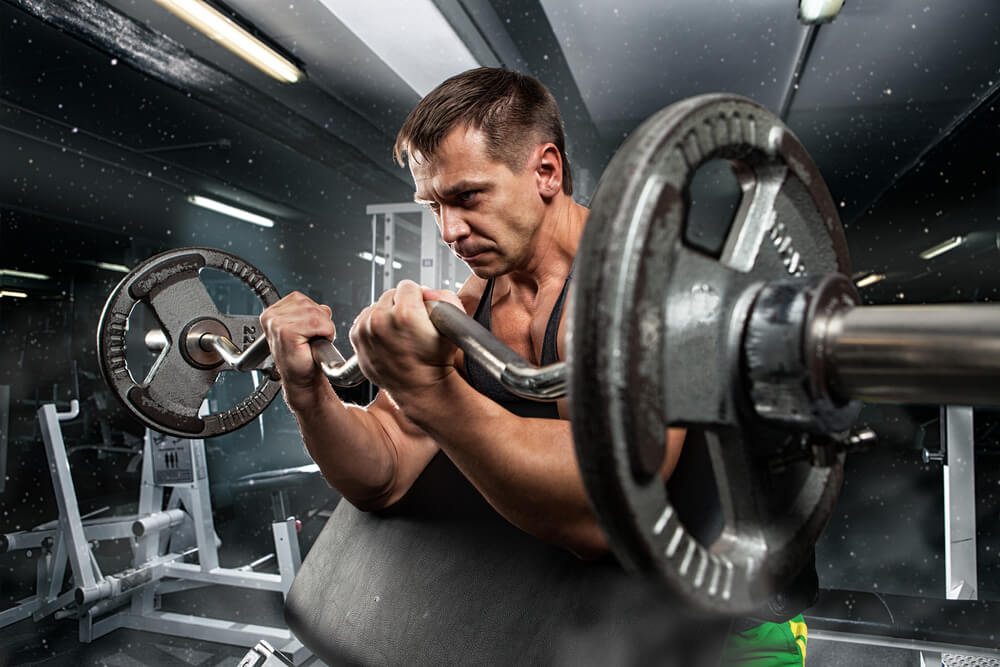





[…] via- https://gymjunkies.com/best-muscle-gainer-supplements/ […]
[…] 23, 2018 Facebook Twitter Google+ Pinterest WhatsApp var td_screen_width = window.innerWidth; if ( td_screen_width >= 1140 […]
[…] April 27, 2018 Image credit: source […]
He is very beautiful and his body is very good, I like his looks very much